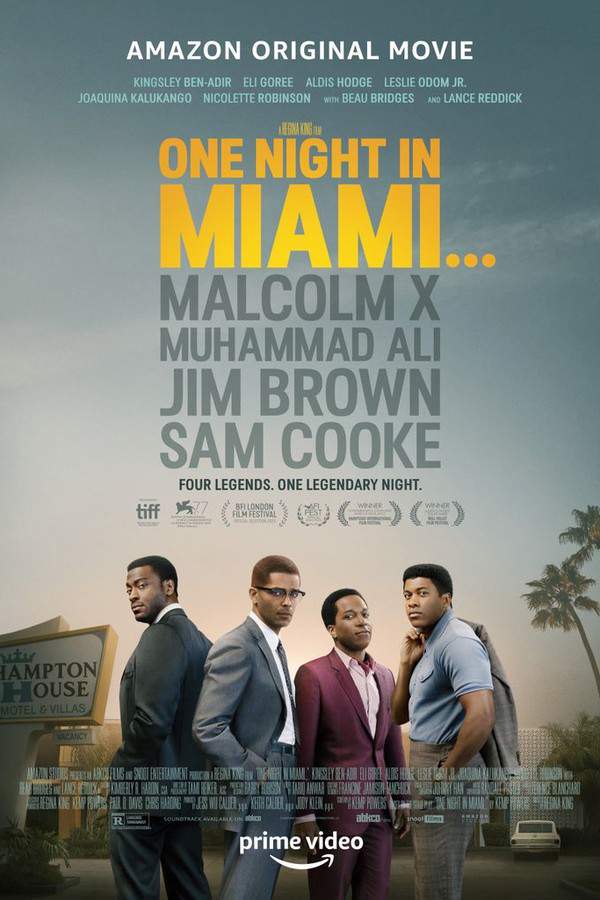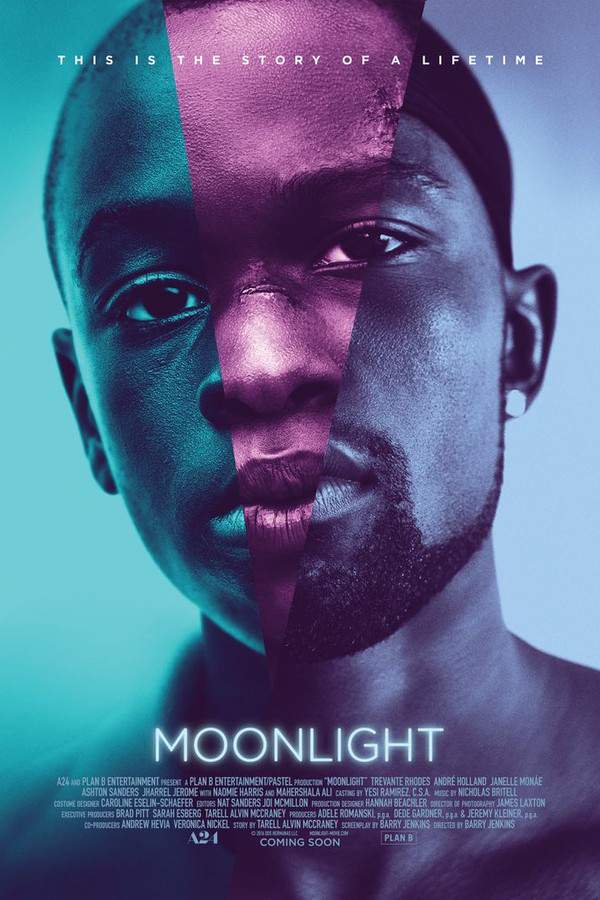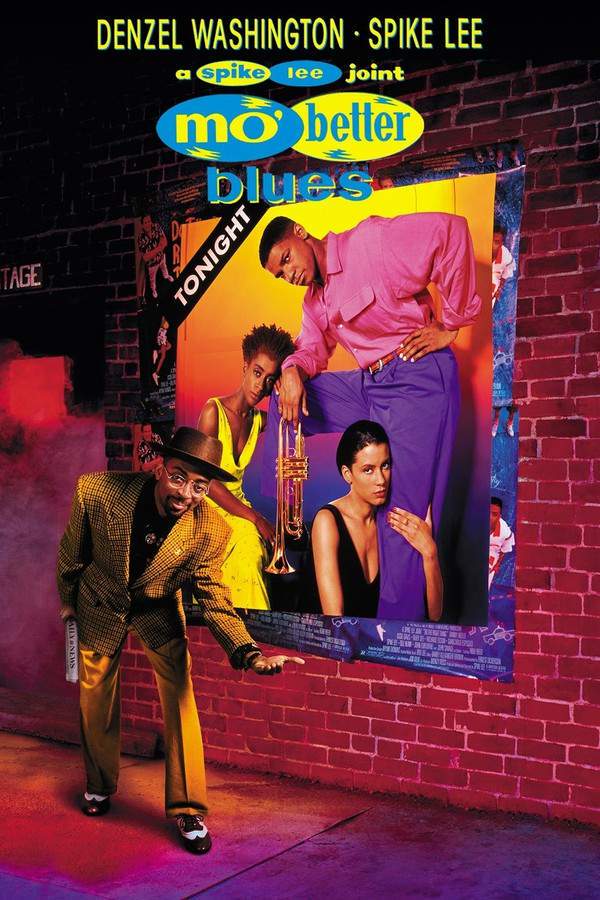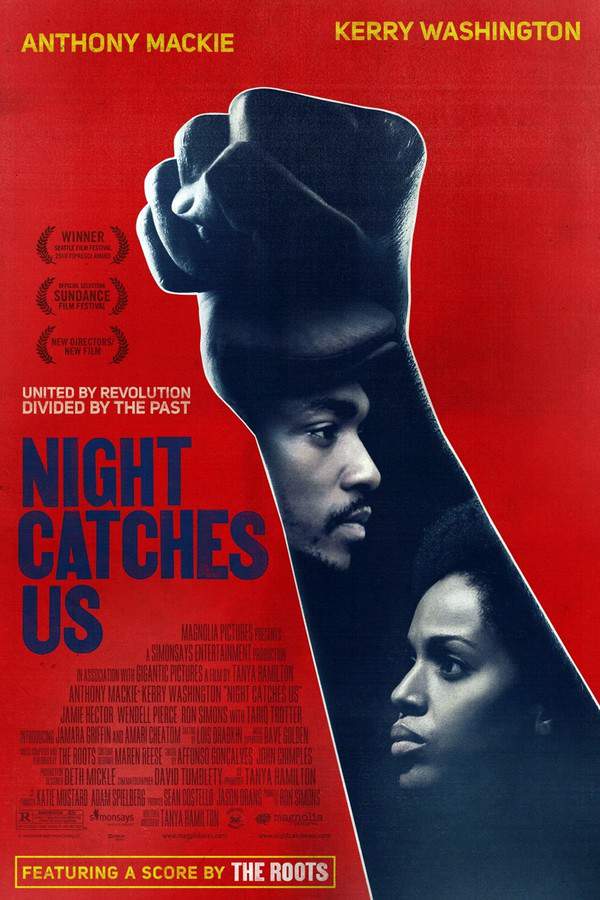
Test your knowledge of One Night in Miami with our quiz!
One Night in Miami Plot Summary
Read the complete plot summary and ending explained for One Night in Miami (2020). From turning points to emotional moments, uncover what really happened and why it matters.
The film begins with a title card indicating that it is based on true events, setting the stage in 1963 and paralleling multiple narratives. We witness Cassius Clay (Eli Goree) on the verge of defeat against Henry Cooper at Wembley Stadium, where Clay’s taunting leads him to a near disastrous knockout. Simultaneously, in the vibrant atmosphere of the Copacabana in New York, soul sensation Sam Cooke (Leslie Odom Jr.) performs to an unimpressed, predominantly white audience marking a pivotal moment in his career.
Meanwhile, NFL star Jim Brown (Aldis Hodge) returns to his roots in Georgia, greeted by family friend Mr. Carlton (Beau Bridges) at a grand plantation. Though Carlton praises him with fervor, the warm welcome quickly turns sour upon Carlton’s use of a racial epithet, revealing the deep-seated prejudices that remain in society. At the same time, Malcolm X (Kingsley Ben-Adir) returns home and confides in his wife, Betty (Joaquina Kalukango), about his contemplation of leaving the Nation of Islam.
As the narrative unfolds, we leap into February 25, 1964, where the men converge in Miami for Clay’s monumental match against Sonny Liston. Prior to the fight, Malcolm meets with Clay at a motel, where they engage in Islamic prayer rituals. That night, in a shocking upset, Clay claims the title of world heavyweight champion. Following the match, Malcolm invites his three friends to his motel room, hoping for a reflective gathering, yet anticipation of celebration turns to tension. Disagreements arise as Malcolm criticizes Sam for his mainstream success and suggests he’s betraying the black community.
In a crucial moment, Malcolm’s assistant and bodyguard, Kareem (Lance Reddick), provides a sense of security, highlighting the atmosphere laden with conflict. The group wrestles with their identities and responsibilities, particularly Malcolm’s increasing paranoia about being surveilled by the FBI and his emotional distress regarding his allegiances to the Nation of Islam.
As the night progresses, the dialogue becomes more charged. Malcolm’s aggressive questioning of Sam’s artistic choices leads to a physical confrontation that Kareem and a young Nation of Islam member, Jamaal (Christian Magby), swiftly defuse. This confrontation peels back layers of internalized racism and socio-political dynamics, as Jim shares his aspirations of becoming a film actor while grappling with his own racial identity.
As Sam and Cassius contemplate their futures, a significant moment arises—Cassius articulates the essence of “Power” as the ability to live authentically. Despite the friction in their relationships, there’s an underlying bond and a shared vision of empowerment. The tension boils over again, with Malcolm and Sam at odds about the impact of their success, leading Sam to storm out after a particularly heated exchange.
Yet, amidst conflict, there’s camaraderie; they briefly step out to experience life outside of their pressures—old friends reuniting over small errands, grappling with the implications of their fame. Following their return to the motel, Malcolm lays out a radical proposal—he intends to break from the Nation of Islam to forge his own path. Cassius rebuffs Malcolm’s invitation to join this new cause, filled with feelings of betrayal.
In a twist of fate, the press catches wind of their gatherings, prompting Cassius to speak on his newfound beliefs, a decision that propels their lives into uncharted territories. That evening, the aftermath unfolds joyfully as they toast to Cassius’s decision. Meanwhile, Malcolm confronts impending threats, noticing the ominous presence of the same white men from before, underscoring the constant danger that looms.
The film captures momentous events: Sam’s poignant debut of “A Change Is Gonna Come” on The Tonight Show, Cassius changing his name to Muhammad Ali, and Malcolm’s turbulent fallout with the Nation of Islam which culminates in a firebombing of his home. The film concludes with a powerful quote from Malcolm on his own fate, foreshadowing the tragic events that would lead to his assassination just days later, signifying the harsh realities faced by those who fight for justice and equality.
One Night in Miami Timeline
Follow the complete movie timeline of One Night in Miami (2020) with every major event in chronological order. Great for understanding complex plots and story progression.
Introduction to 1963
The film begins with a title card indicating the setting of 1963, laying the groundwork for the intertwined narratives of the characters. This moment establishes a historical context for the events that will unfold, emphasizing the socio-political climate of the era.
Cassius Clay at Wembley Stadium
In a tense boxing match at Wembley Stadium, Cassius Clay is on the verge of a knockout by Henry Cooper. Clay’s trademark taunting brings excitement to the fight, demonstrating both his skill and his charisma, but also lands him in a dangerous position.
Sam Cooke at Copacabana
Meanwhile, at the Copacabana nightclub in New York, Sam Cooke performs in front of a predominantly white audience. Despite his talent, the crowd's lack of enthusiasm marks a pivotal moment in his career, highlighting the racial tensions of the era.
Jim Brown Returns to Georgia
NFL star Jim Brown returns to his hometown in Georgia, where he is greeted by Mr. Carlton on a grand plantation. While the reception starts warmly, Carlton's use of a racial epithet exposes the deep-seated prejudices that persist in society, creating discomfort.
Malcolm X at Home
Malcolm X returns home and opens up to his wife, Betty, about his struggles within the Nation of Islam. This conversation reveals his inner conflict and sets the stage for the choices he will face regarding his faith and activism.
Cassius Clay vs. Sonny Liston
On February 25, 1964, the men gather in Miami for Clay's pivotal boxing match against Sonny Liston. The atmosphere is charged as Malcolm X meets with Clay to engage in Islamic prayer rituals before the fight, showcasing their close friendship and shared beliefs.
Clay Becomes Champion
In a shocking upset during the match, Cassius Clay claims the title of world heavyweight champion after defeating Sonny Liston. This victory signifies not just a personal achievement for Clay, but also a momentous occasion for the African American community.
Gathering in the Motel Room
After the match, Malcolm invites his friends to his motel room for a celebration, hoping to reflect on their successes. However, the atmosphere soon turns tense as disputes arise, particularly over Sam’s commercial success, which Malcolm sees as a betrayal.
Conflict Among Friends
The gathering escalates as Malcolm questions Sam about his artistic choices, leading to a physical confrontation. Kareem and a younger member of the Nation of Islam intervene, showcasing the rising tensions and complex dynamics among the group.
Exploration of Identity
During the heated discussions, each friend grapples with their racial identity and aspirations. Jim expresses his dreams of becoming an actor while Malcolm's increasing paranoia about surveillance hangs heavy in the air, highlighting their struggles.
Cassius's Insight on Power
As conversations unfold, Cassius articulates a profound insight on 'Power' and living authentically, strengthening their bond. Despite the conflicting views, there is a shared sense of empowerment that underscores their friendship.
Sam Storms Out
The discord peaks between Malcolm and Sam, culminating in Sam angrily storming out after a particularly charged exchange. This moment symbolizes the strain in their relationship and the larger societal conflicts they face.
Camaraderie Amidst Tensions
Despite the conflicts, the friends share moments of camaraderie, stepping outside to enjoy life and reconnect. Their brief escape emphasizes the importance of friendship as they navigate the pressures of fame and identity.
Malcolm's Proposal
Back at the motel, Malcolm reveals his radical proposal to break from the Nation of Islam, envisioning his path forward. This moment is marked by tension as Cassius declines the invitation, feeling a sense of betrayal.
The Aftermath
The press learns of their gatherings, forcing Cassius to vocalize his newfound beliefs, fundamentally changing their lives. As they toast to Cassius's decision, Malcolm faces ominous threats, reminding them of the persistent dangers in their fight for justice.
One Night in Miami Characters
Explore all characters from One Night in Miami (2020). Get detailed profiles with their roles, arcs, and key relationships explained.
Kareem X (Lance Reddick)
Kareem is portrayed as a steadfast protector and confidant to Malcolm X. His presence provides a sense of security in an environment fraught with danger and tension. As an assistant and bodyguard, his loyalty is evident, yet he also serves as a bridge between Malcolm and his friends, navigating the complex dynamics during their critical conversations.
Sam Cooke (Leslie Odom Jr.)
Sam Cooke is depicted as a talented yet conflicted soul artist grappling with his commercial success and its implications for the black community. His interactions often reveal his struggles to balance artistry and activism, especially in the face of Malcolm's criticisms. Cooke embodies the tension between trying to excel in mainstream culture while staying true to his roots.
Cassius Clay (Eli Goree)
Cassius Clay emerges as a charismatic and bold figure, whose journey towards becoming Muhammad Ali is pivotal. His unwavering determination and confidence shine through as he navigates the pressures of fame and expectations. Clay’s reflections on identity and power resonate throughout the narrative, culminating in his declaration of self-identity.
Jim Brown (Aldis Hodge)
Jim Brown is portrayed as an iconic figure who faces racial prejudice despite his success as an NFL star. Throughout the film, he wrestles with his aspirations and the societal expectations placed upon him. Brown’s transition from sports to potential actor illustrates his desire to challenge stereotypes and break barriers.
Malcolm X (Kingsley Ben-Adir)
Malcolm X is central to the narrative, embodying the complexities of activism and the personal conflicts he faces with his faith and identity. His charisma and urgency to advocate for black empowerment create tension within the group, leading to profound discussions about loyalty and responsibility. His eventual fallout with the Nation of Islam underscores the risks he takes for his beliefs.
One Night in Miami Settings
Learn where and when One Night in Miami (2020) takes place. Explore the film’s settings, era, and how they shape the narrative.
Time period
1963-1964
Set against the backdrop of the civil rights movement, the film unfolds during a pivotal period when the struggles for racial equality were intensifying. 1963 marked significant social unrest and change, particularly for African Americans grappling with systemic oppression. The events leading to February 25, 1964, become a turning point in not only Cassius Clay's career but also in the fight for black empowerment.
Location
Wembley Stadium, Copacabana, Georgia, Miami
The film takes place in iconic locations, starting with Wembley Stadium in London, known for its electric boxing atmosphere and legendary matches. The vibrant Copacabana nightclub in New York serves as a backdrop to Sam Cooke’s performance, showcasing the cultural tensions of the era. Georgia, with its vast plantations, highlights the racial dynamics faced by Jim Brown, while Miami becomes the focal point for the historic boxing match and the gathering of these influential figures.
One Night in Miami Themes
Discover the main themes in One Night in Miami (2020). Analyze the deeper meanings, emotional layers, and social commentary behind the film.
✊
Empowerment
The theme of empowerment resonates throughout the film, as the characters navigate their identities and responsibilities within the African American community. Cassius Clay's transformation into Muhammad Ali symbolizes breaking free from societal expectations and embracing one’s true self. The film delves into the complexities of success and the obligations that come with it, particularly within the realm of civil rights.
⚖️
Social Justice
At its core, the film tackles issues of social justice and the fight against racial oppression. Through the interactions between Malcolm X, Sam Cooke, and their peers, it illustrates the different approaches to activism and the lingering impact of racism. The tension within the group highlights the struggle to reconcile personal success with the collective fight for equality.

Coming soon on iOS and Android
The Plot Explained Mobile App
From blockbusters to hidden gems — dive into movie stories anytime, anywhere. Save your favorites, discover plots faster, and never miss a twist again.
Sign up to be the first to know when we launch. Your email stays private — always.
One Night in Miami Ending Explained
Unravel the ending of One Night in Miami (2020) with our detailed explanation. Understand the final scenes, character fates, and unresolved questions.
The ending of One Night in Miami is both poignant and inspiring, highlighting the enduring legacies of Malcolm X and Sam Cooke even after their tragic deaths. As the film concludes, we see Sam debut his influential song, A Change Is Gonna Come, on The Tonight Show, symbolizing his hope to inspire change through his music. Sadly, Sam is shot less than a year later under mysterious circumstances, cutting short his impactful life. Meanwhile, Malcolm’s journey reflects a deep awareness of his impending fate; his home was firebombed, and he knew his days were numbered due to threats from the FBI and the Nation of Islam. Malcolm’s last words, a quote about being willing to sacrifice for brotherhood, are a powerful testament to his unwavering hope that unity and love could transform America. The film suggests that Malcolm’s shift towards a more inclusive vision was a defining moment, though he was assassinated just two days after his final speech, with his death profoundly impacting the civil rights movement. Jim Brown, another character, chooses to leave professional football and pursue a successful acting career, inspired by the notion that art and social change go hand in hand. Muhammad Ali, formerly Cassius Clay, changes his name in honor of his new identity and cultural beliefs, breaking from Malcolm and the Nation of Islam—an act that signifies both his personal growth and the complicated friendship between him and Malcolm. The film closes on a note of hope, despite the tragedies, emphasizing how these men’s sacrifices and convictions continue to influence the fight for equality today. Their night together acts as a symbolic turning point, illustrating their impact on history and inspiring future generations to keep pushing for justice. As the screen fades, Leslie Odom Jr.’s song resounds, affirming that even in dark times, the spirit of singing and hope persists.
One Night in Miami Spoiler-Free Summary
Discover the spoiler-free summary of One Night in Miami (2020). Get a concise overview without any spoilers.
In the sweltering heat of 1964 Miami, a night that feels both celebratory and reverent unfolds within the walls of a modest hotel room. Fresh off a historic boxing triumph, Cassius Clay steps away from the glare of the ring and into a more intimate arena where the clink of glasses masks deeper conversations. The city itself hums with a restless energy—sun‑baked streets, jazz‑filled clubs, and a nation teetering on the brink of profound change—setting a tone that is simultaneously hopeful and charged with unspoken tension.
Gathered around the low‑lit table are three other towering figures of the era, each carrying his own brand of fame and responsibility. Malcolm X arrives with a blend of fierce conviction and measured caution, his thoughts on faith, identity, and the burden of leadership lingering beneath his composed exterior. Beside him, Sam Cooke offers a smooth, soulful presence, his smooth voice having just begun to ripple across mainstream airwaves, yet his eyes betray the ache of navigating a world that often demands he compromise his roots. Jim Brown, the celebrated athlete, brings a quiet confidence, his aspirations stretching beyond the gridiron toward a broader canvas of cultural expression. Their differing paths converge, hinting at a shared longing to define what it means to be powerful and purposeful in a society still wrestling with its own contradictions.
The film’s tone is intimate and contemplative, blending the smoky intimacy of a private gathering with the broader, turbulent backdrop of the civil‑rights movement. Dialogue drifts between earnest reflection and sharpened debate, allowing each personality to illuminate the others’ doubts and ambitions. As the night stretches on, the room becomes a microcosm of a nation in flux—where brilliance, bravery, and the quest for authenticity intersect, leaving the audience eager to hear what insights might surface when such iconic lives briefly intersect.
Can’t find your movie? Request a summary here.
Movies with Similar Twists and Themes
Uncover films that echo the narrative beats, emotional arcs, or dramatic twists of the one you're exploring. These recommendations are handpicked based on story depth, thematic resonance, and spoiler-worthy moments — perfect for fans who crave more of the same intrigue.
Featured on this page

What's After the Movie?
Not sure whether to stay after the credits? Find out!
Explore Our Movie Platform
New Movie Releases (2025)
Famous Movie Actors
Top Film Production Studios
Movie Plot Summaries & Endings
Major Movie Awards & Winners
Best Concert Films & Music Documentaries
Movie Collections and Curated Lists
© 2025 What's After the Movie. All rights reserved.













